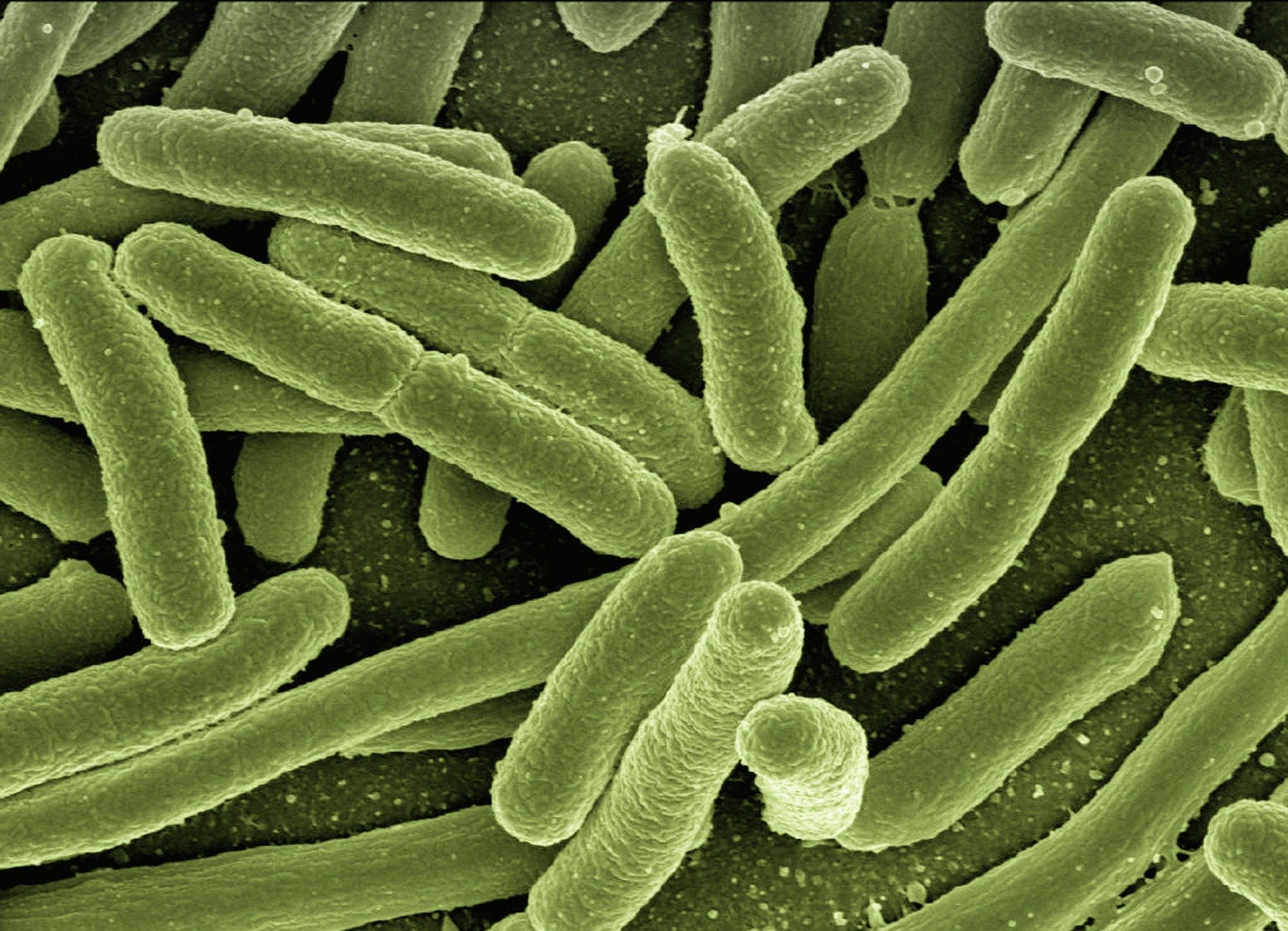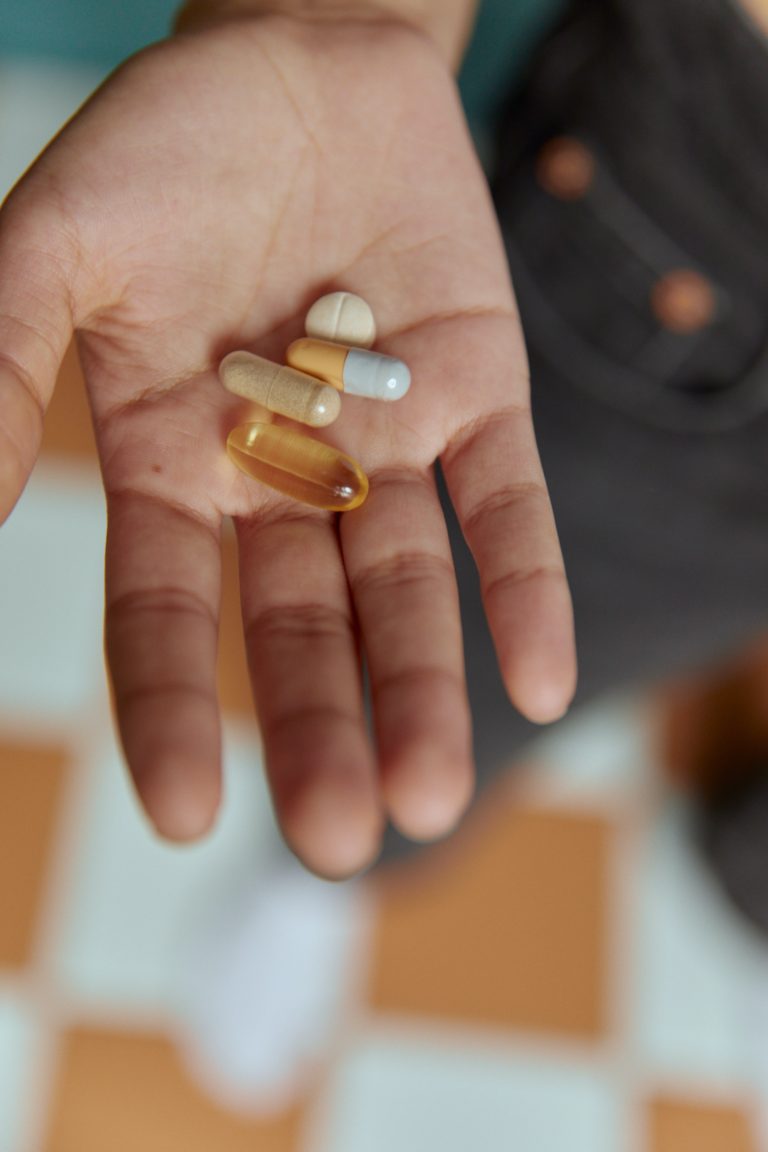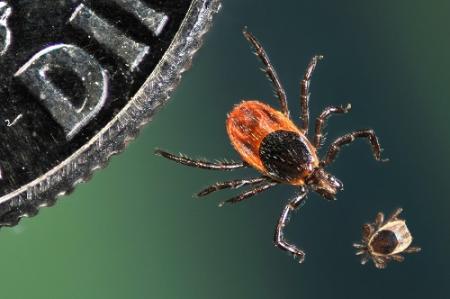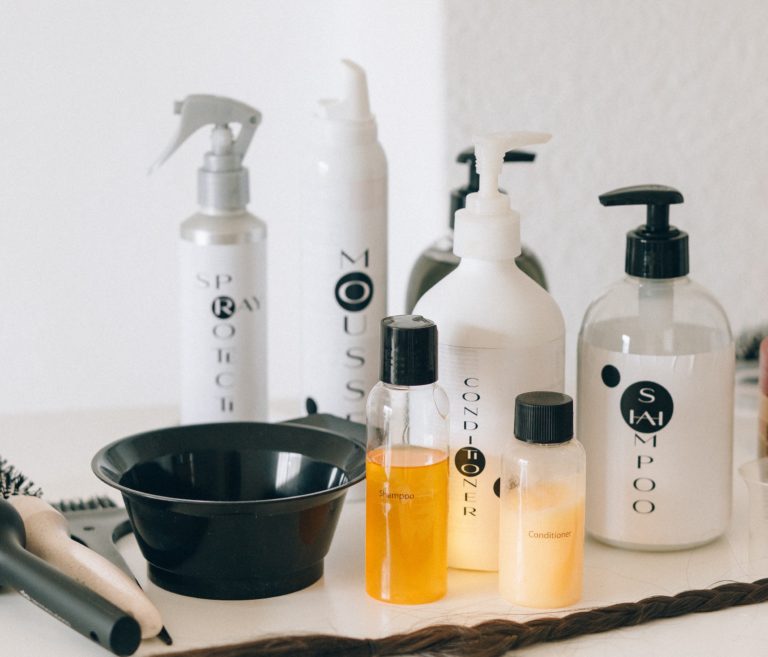What are probiotics? What you MUST know
(This post may contain affiliate links. See the full affiliate disclosure here for more info.)
To help answer the question, “What are probiotics?” I have to rely on my science background because this post will get a little geeky. You’ll learn the names of bacteria and why you need them for optimal health.
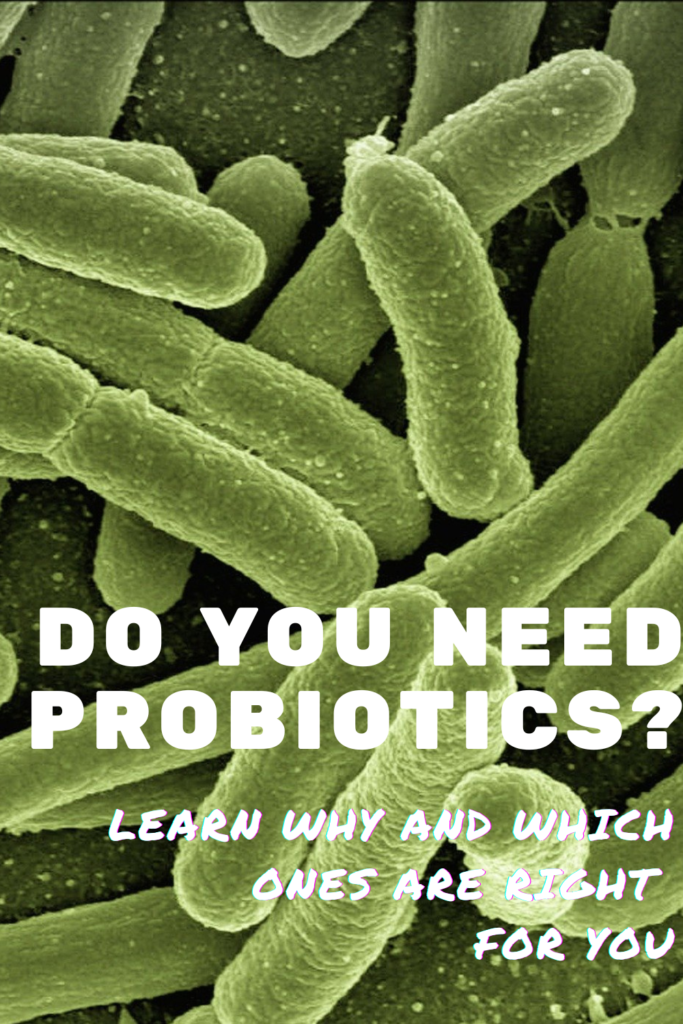
You probably won’t believe the scope of the impact of probiotics. And you’ve probably heard about probiotics with respect to your gut and digestion, but they are so much more than something in yogurt!
The good news is that probiotics have been highlighted as an important research topic in recent years and there’s a TON of good information for consumers to use to help them learn the best probiotic food and best probiotic supplements.
Let’s start with a definition. The World Health Organization (WHO) defines probiotics as “Live microorganisms that, when administered in adequate amounts, confer a health benefit on the host.”
But the easy way to answer, “What are probiotics?” is simply to think of them as good microorganisms.
Ok, so how do you acquire/get/eat/obtain good bacteria? Foods and supplements are the usual ways to get probiotics. As with most dietary supplements and vitamins, you can get more probiotics from supplements than food.
But you’ve got to know which probiotic supplements are best and which probiotic foods have the most bang for your buck—or literally, the most live, beneficial organisms per mouthful!
Benefits of probiotics
What do probiotics do?
Our gut is full of bacteria, trillions, in fact. They digest food, produce vitamins and other compounds, and are active in immunity, where they produce anti-microbial chemicals in response to bad bacteria (pathogenic, disease-inducing bacteria).
After birth, we’re constantly exposed to bacteria—everything we put into our mouth, food and otherwise—has bacteria on it that we ingest. Scientists have found that diet, age, and geography influence the types and ratios of organisms in our gut.
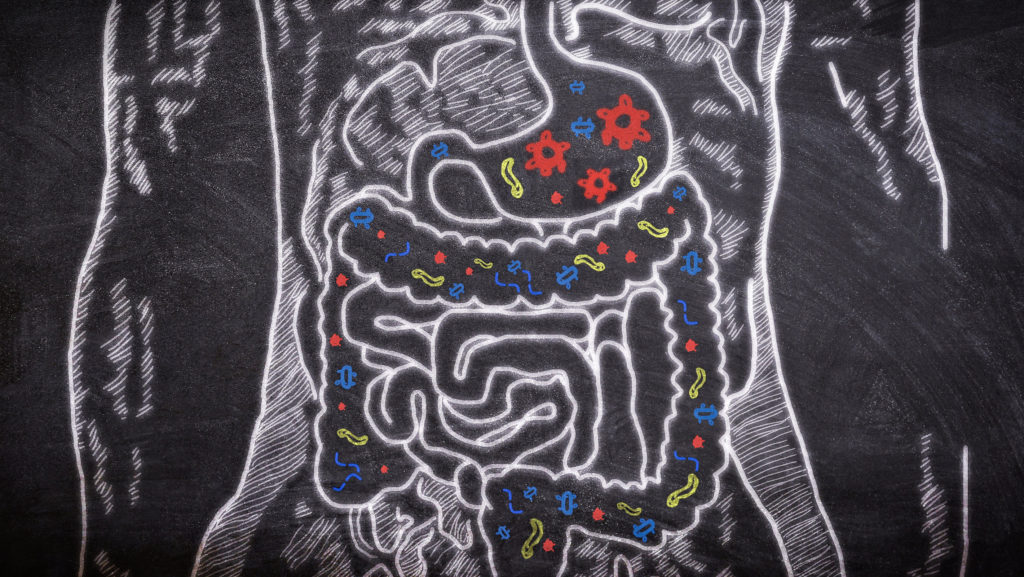
Have you ever taken a course of antibiotics only to have diarrhea or a yeast infection after? That is because the good bacteria (probiotics) in your gut were killed by the antibiotics. Perhaps your healthcare provider recommended taking the course of antibiotics with yogurt containing healthy bacteria or specific types of bacteria.
The balance between good and bad and types of good organisms is very important because maintaining a healthy balance is the key to good gut health and is commonly referred to as your microbiome (which also exists in other places such as the skin and vagina).
The importance of gut health
Research studies have examined both the health benefits of good probiotic bacteria and problems associated with harmful bacteria.
Yes, the bacteria we are talking about are in the gut, but the effects of gut bacteria are very far-reaching. To understand one reason that gut health can affect the entire body is something called the gut-brain axis.
As crazy as it sounds, an interaction exists between organisms and the gut-brain axis. This interaction is bidirectional—signals move from gut microorganisms to the brain and from the brain to gut bacteria by neural (nervous system), endocrine (hormone), immune response, and humoral (body fluid carrying immune cells and antibodies) links.
Autism is an extremely complicated disorder, and I don’t pretend to understand but I have read many papers (because of my proofreading job and personal interest). However, research on autism and the influence of the gut-brain axis on mental health is actively being conducted.
Because it’s difficult to study cause-and-effect in human clinical research studies, research is often done in animal models. However, observational studies can be done in humans. Imbalances in gut bacteria have been observed in cancer, diabetes, obesity, cardiovascular diseases, autoimmune diseases, neurological diseases, and autism.
Children with autism were found to have lower levels of Veillonellaceae, Coprococcus, and Prevotella gut bacteria than those without autism.
Researchers found that mice with an autism-like condition had lower levels of Bifidobacterium and Blautia gut bacteria, and their guts made less tryptophan and bile acid, compounds needed to produce serotonin.
Bacteroides, Lachnospira, Ruminococcus, Phascolarctobacterium, and Coprococcus (all of these are bacteria) were significantly decreased in patients with ulcerative colitis.
And people with fewer and less diverse types of bacteria in their intestines (also referred to as intestinal flora) appeared to be more prone to obesity.
Does any of this mean that probiotics can cure diseases and other disorders and help with weight loss? That has not been definitively shown yet, but there are promising results on the use of probiotics to treat disorders.
The list of disorders linked to microorganisms in the gut and the gut-brain axis is growing every day. I will do my best to keep you updated on the findings and how they might relate to your health and specific health benefits.
In the meantime, though, we can keep our guts healthy by following expert advice on what strains of probiotic bacteria are best and the number of microbes we need.
Probiotic vs prebiotic
Again, I have an easy way to explain probiotic vs. prebiotic. Think of prebiotics as the food for probiotics—good food for good bacteria.
Fiber, like that found in whole grains, is a particularly favorite treat of probiotics. See a theme here? It really is true that what you are is what you eat. But it’s also true of your gut bacteria. Feed them the foods that are good for you, and they will be healthy, too.
And now, we have postbiotics!
Postbiotics are produced by probiotics—they are products of bacterial metabolism.
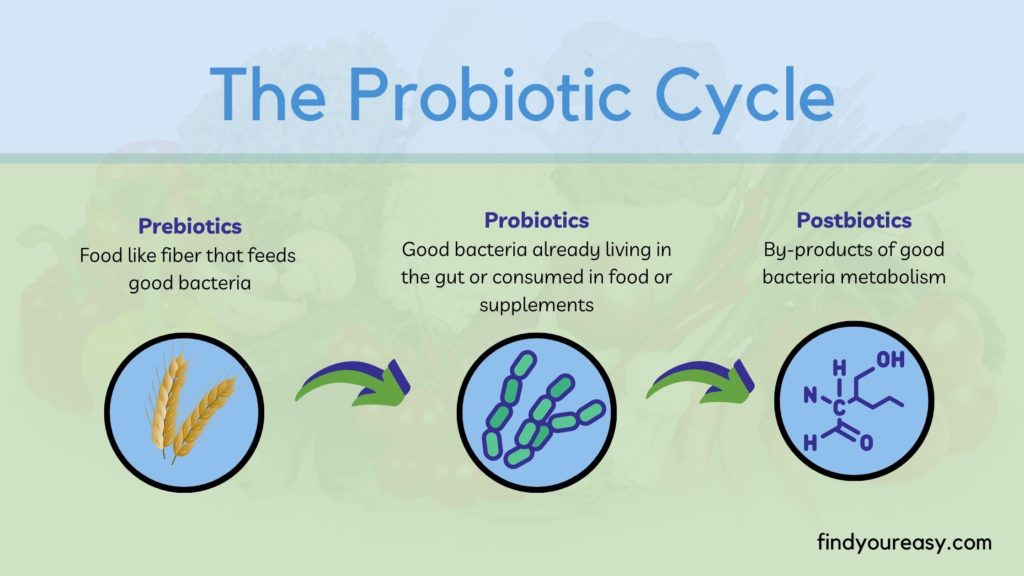
Probiotic food
Yogurt is made by curdling milk, which is accomplished with the help of bacteria. Yogurt often contains Lactobacillus (also called lactic acid bacteria) and Bifidobacterium.
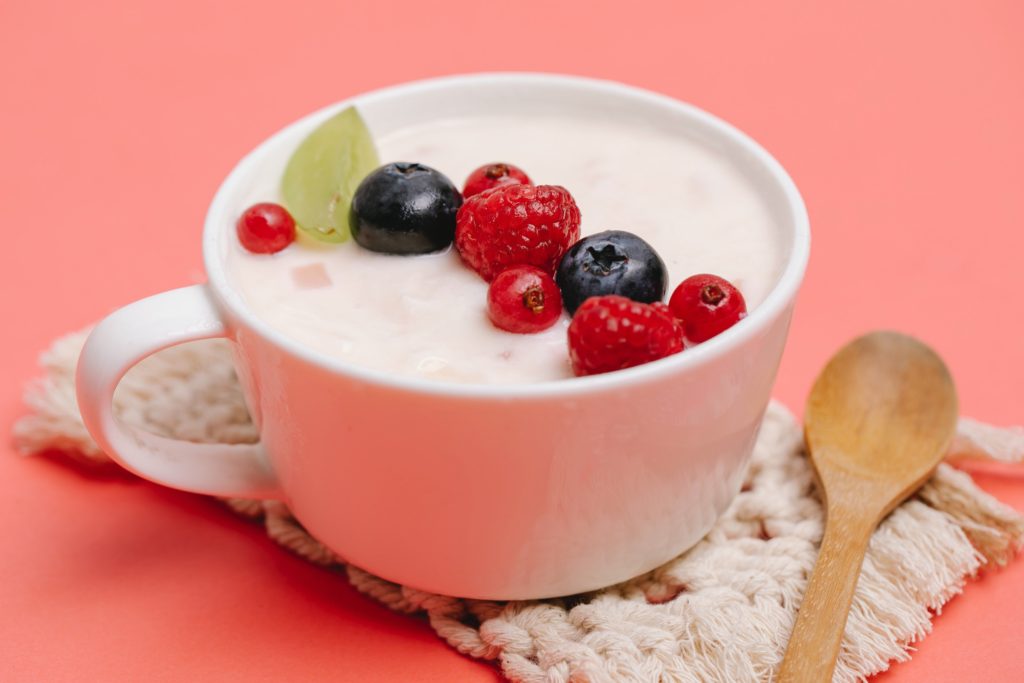
Yes, “active, live cultures,” which basically means live microorganisms, are important. Dead bacteria have no value as probiotics. They need to be alive to multiply in your gut and work their magic.
Fermented foods are a great source of different types of probiotics, and the market has seen a great surge in the variety of fermented foods available. You can choose from kimchi (spicy fermented cabbage dish), kombucha, pickles, sauerkraut, tempeh (fermented soybeans), miso (fermented soybeans with brown rice), and kefir (tart dairy or non-dairy yogurt-like fermented milk drink).
Probiotic supplements
Even if you love yogurt and probiotic-rich foods, the bacteria you get will be limited to a few different strains, probably Lactobacillus, Streptococcus thermophilus, and Bifidobacterium.
And a study on Activia yogurt funded by Dannon (its manufacturer) found that yogurt had to be consumed two or three times a day to get benefits.
Probiotic supplements can provide many more bacteria and many more types of bacteria.
But how can you choose the best probiotic products for the health of your microbiome? How do you know which one has the most potential benefits?
You need to know a few things first. These tips may be the most important part of the post:
1. Products may be marketed to men or women or for a specific purpose, such as vaginal health, but most have not been extensively tested for specific purposes.
2. CFU stands for “colony-forming unit” and is a measure of the number of bacteria in a product.
3. Probiotics may not be able to counteract the bad effects on the gut of habits such as smoking, excessive alcohol consumption, stress, and a poor diet. A healthy lifestyle that includes a healthy diet is paramount to good gastrointestinal health and good overall health
4. BEWARE of any post recommending the “best” or anything—not just probiotics. Many, many sites are run by people trying to sell things, and the recommendations are not based on scientific proof.
Look for reputable sites that end in .edu or .gov or sites run by reputable organizations such as the American Heart Association and the Mayo Clinic.
Best probiotics for women
With the exception of those marketed for vaginal health, the best probiotics for women and men are the same. Please note that I said “marketed” because the evidence that probiotics can maintain or restore the balance in vaginal organisms is inconclusive.
The usefulness of probiotics and important functions associated with live probiotics are still being debated. However, there is some good evidence that Lactobacillus reuteri can have positive effects on heart health, gut health, and vitamin D levels (please see my post on the benefits of vitamin D).
I like the Microbiome Plus company because they publish clinical evidence backed by scientific studies. They also offer one-time purchases and subscriptions, which will save you money because probiotics should be part of your overall long-term health efforts.
And they offer Lactobaccillus reuteri and have a combination prebiotic-probiotic option.
Probiotics for vaginal health
Lactobacilli species bacteria are used clinically to restore the vaginal microorganisms in efforts to treat bacterial vaginosis and vulvovaginal candidiasis (yeast infection) and prevent preterm birth.
However, a recent meta-analysis (a study that examines all relevant past studies to get draw a comprehensive conclusion) found that preterm birth rates were not different between women with group B Strep vaginal infections who did or did not take probiotics for three weeks or until delivery.
Other recent research found that oral probiotics did not increase the proportion of normal vaginal bacteria compared to study participants who took a placebo (no probiotics).
Experts also disagree on whether treating a condition adequately addresses the probable cause of the condition.
In the end, it certainly won’t hurt to increase your consumption of yogurt and fermented food if you are taking antibiotics, but the evidence is not strong that either these foods or probiotics for women will prevent a yeast infection or restore the balance in vaginal organisms.
Probiotics for men
In my opinion, the best probiotics for men are the same as the best probiotics for women. Please see the section above.
Probiotics for infants
Right now, the strongest evidence for the beneficial use of probiotics is in preventing or treating necrotizing enterocolitis, acute infectious diarrhea, acute respiratory tract infections, antibiotic-associated diarrhea, and infant colic.
Another study in 2018 of only 86 infants found that probiotics self-administered by mothers during breastfeeding, as well as directly to their infants, exerted only limited effects on the gut microbial composition, and they were associated with increased infections later in life.
However, a meta-analysis found that the administration of probiotics to very preterm infants reduced the risk of late-onset infections.
All that said, the recommendation and administration of probiotics to infants is best left to doctors.
Probiotic bottom line
Don’t forget that you MUST feed the probiotics you take, as well as the good bacteria already in your gut, properly. Try to consume a healthy balanced diet rich in fruit, vegetables, and fiber. Take a fiber supplement, if necessary, to be sure that you supply the prebiotics you need.
I hope this post puts probiotics, as well as prebiotics and postbiotics, in perspective—particularly where they fit in your health plan. Probiotic supplements can help get you healthier and keep you healthier.
Finding the best probiotics for women, probiotics for vaginal health, or probiotics for men to personalize probiotic supplementation according to your needs may help fine-tune your results.
And even though you might not get the same concentrations of probiotics, keep fermented food and yogurt as yummy and healthy parts of your diet.
Keeping an awareness of probiotics, prebiotics, and postbiotics in your daily diet and health is an easy way to improve your health naturally.


